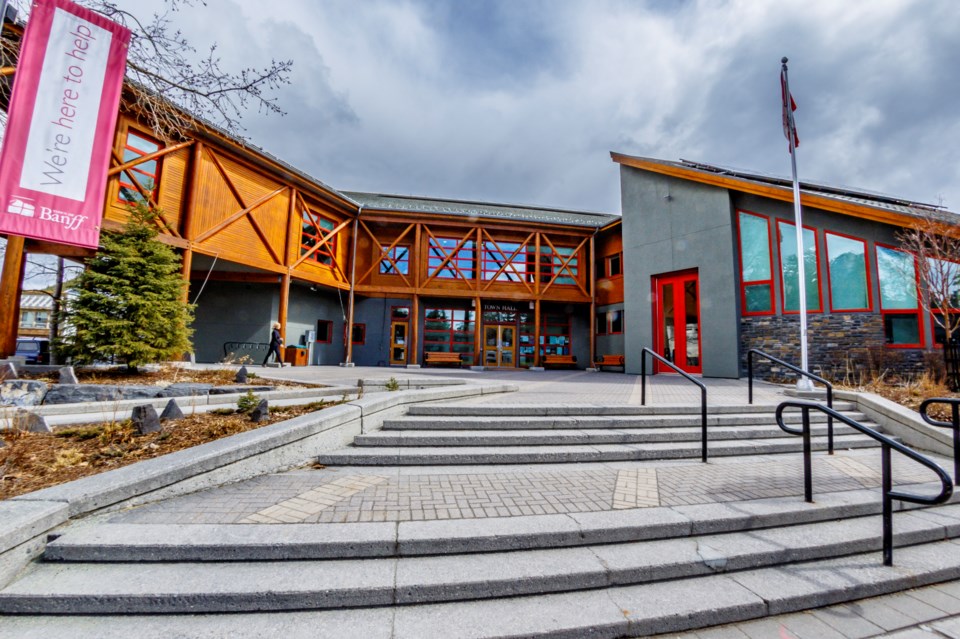BANFF – The Town of Banff is looking at financial incentive programs and drafting changes to the land use bylaw to encourage development of legal basement suites.
The governance and finance committee has directed administration to draft land use bylaw amendments that include changing accessory dwellings, such as basement or garage suites, to permitted uses rather than discretionary, and allowing them in all housing types.
The committee has also given administration permission to bring a recommended grant program – $30,000 to encourage development of net new accessory dwellings, $10,000 for owners to legalize their unauthorized basement suites, and $5,000 for condominium associations needing to change bylaws to allow accessory dwellings – as a new service level ask when budget deliberations get underway in December.
“This is a response for the need for housing in the community, which has been a council priority for many years,” said Kathleen Gallagher, development planner for the Town of Banff during the committee meeting on Monday (Oct. 23).
Coun. Grant Canning said council has to do everything possible to bring illegal suites into compliance, noting “unauthorized suites are pretty much the dirty little secret that we don’t seem to talk about too much.”
“There’s a lot of them in this community, and we talk a lot about a zero per cent vacancy rate, when in reality we’re probably much lower than that because too much of our housing is actually oversubscribed, too many people are living in too many small spaces, and not only that, in illegal spaces,” he said.
“I hate to say it, but garages, closets, you name it, it’s very prevalent in the community and it is really incumbent upon us to bring this out of the shadows and into the light. So much of this is around safety issues, quality of life issues.”
Gallagher said about 15 applications for accessory dwelling units have gone before the Municipal Planning Commission (MPC) in the past five years.
She said the cost to develop an accessory dwelling is estimated between $65,000 and $315,000.
“The financial incentive program is aimed at really tipping the scales of people considering developing an accessory dwelling unit and helping them get over the cost hurdles to do that,” she said.
As for the proposed bylaw amendments, administration expects to see more people wanting to build accessory dwellings if they become permitted instead of discretionary uses in most, if not all, land use districts.
Gallagher said applications for a permitted use typically proceed faster and with more certainty than those for discretionary uses, which are referred to MPC for approval and involve a surcharge and longer and more rigid timelines for approval.
“This would reduce financial and administrative barriers to accessory dwelling applications,” she said.
“This tactic is likely to result in more applications for this housing type, processed at a faster rate, with less risk.”
The governance and finance committee has also directed administration to draft bylaw amendments to allow accessory dwellings to be associated with more housing types, such as four-plexes, row housing, stacked row housing, and apartment buildings.
Gallagher said accessory dwellings are a smaller form of infill housing by way of rebuilding a garage or renovating a basement, without the need for significant capital investment and years of planning and construction that come with larger projects.
“Applicants for accessory dwellings face barriers such as costs, permit processes, obtaining contractors to draft plans and complete the work for smaller projects, approval requirements, and lack of information or knowledge about accessory dwelling units,” she said.
Mayor Corrie DiManno said she is excited about the proposals.
“I feel it has the potential to help change our housing landscape for the better,” she said.
“This is a very cost effective way, it’s a time effective way of trying to gently add density to our housing stock.”
Meanwhile, the Town of Banff has had no word yet on its application for the federal Housing Accelerator Fund, created to encourage local governments to implement structural and lasting reforms that will increase the supply of housing.
For example, in a major move in September, Banff’s elected officials directed administration to draft legislation that would eliminate parking requirements for new housing developments to get more housing built.
“We don’t have any news in terms of where our application is,” said Alison Gerrits, director of community services, noting there is some hope of announcements for smaller communities in November.




